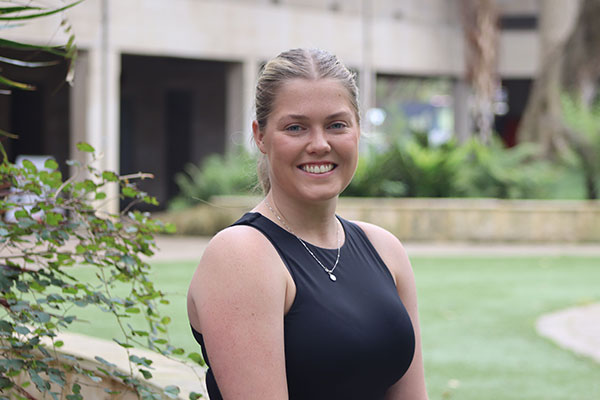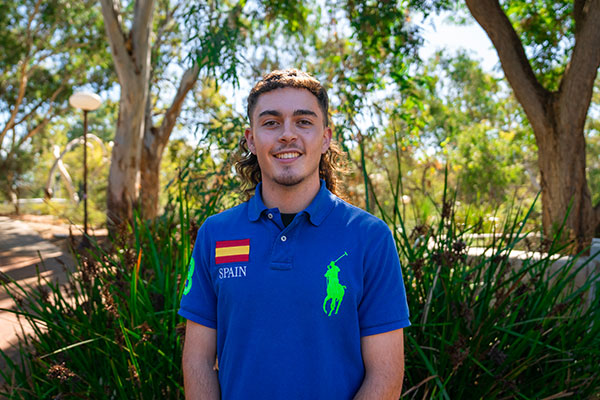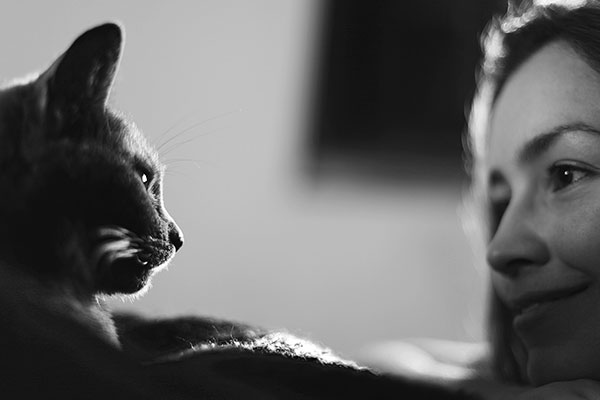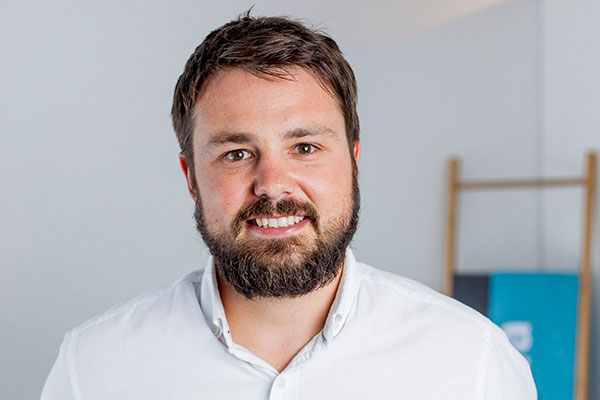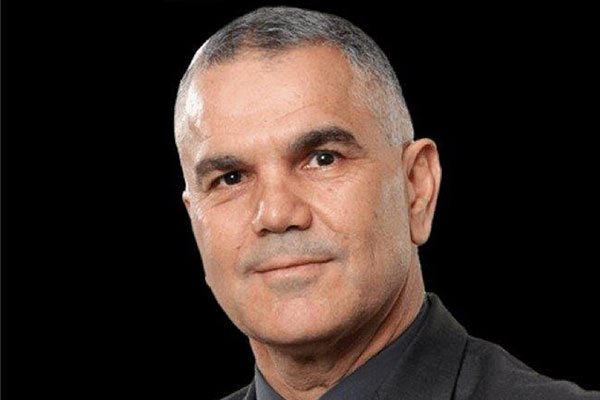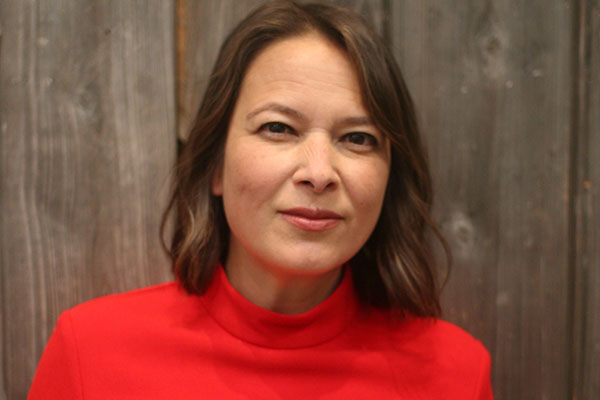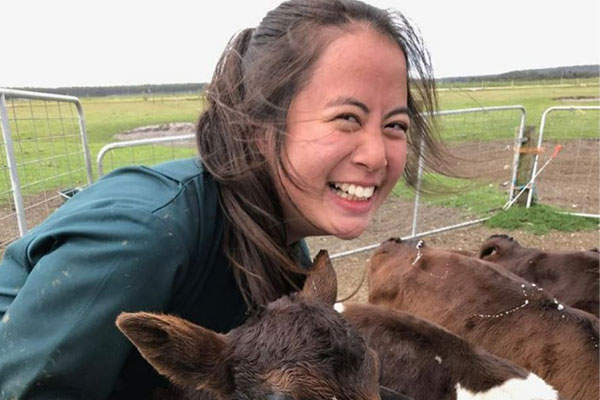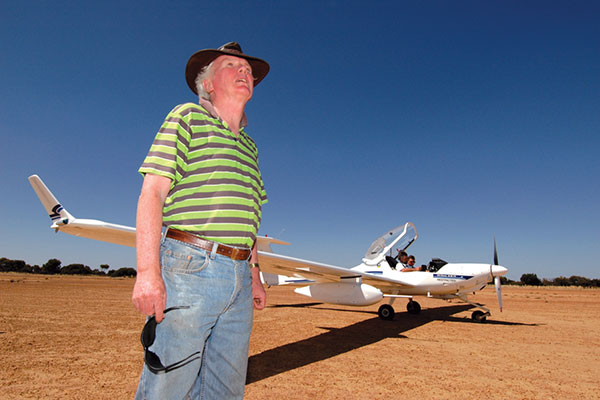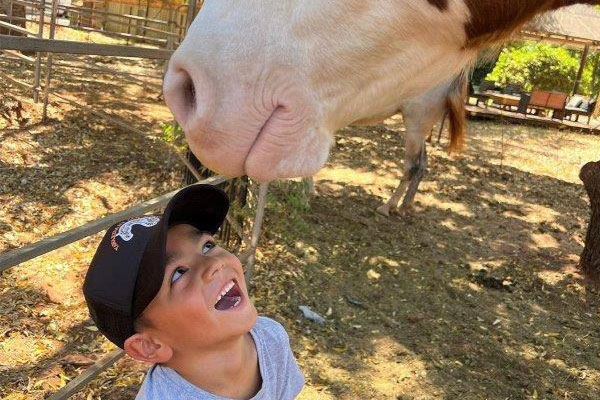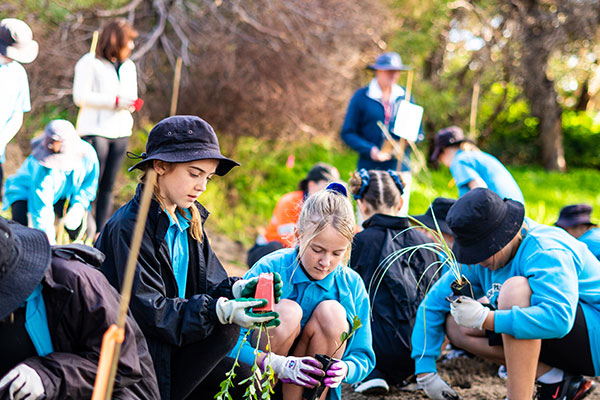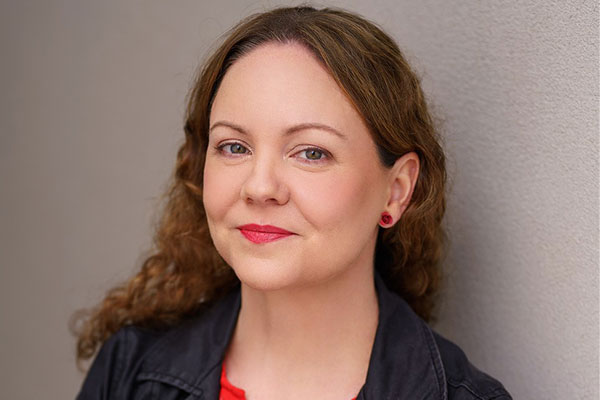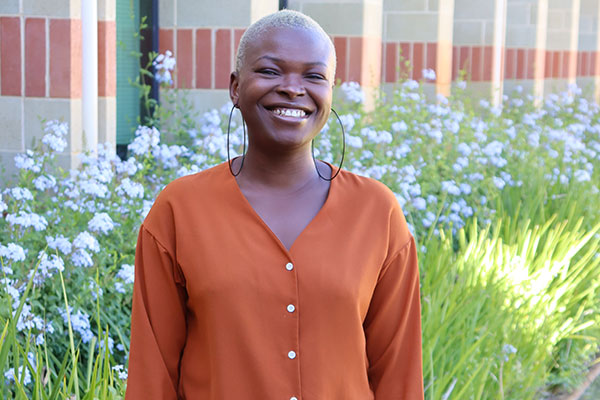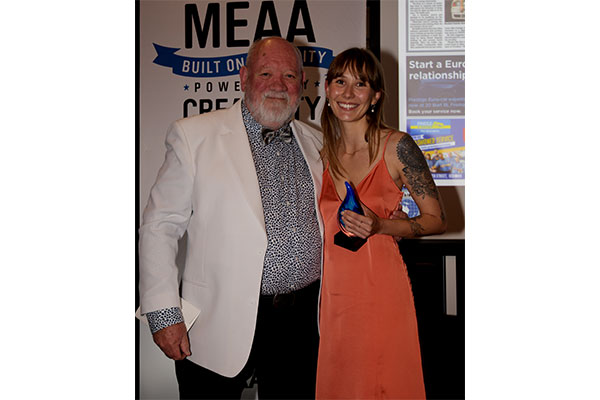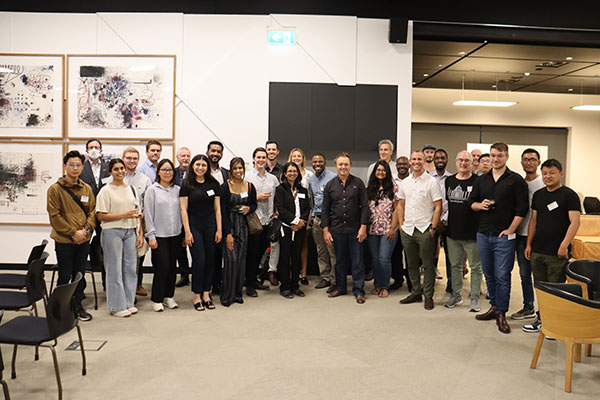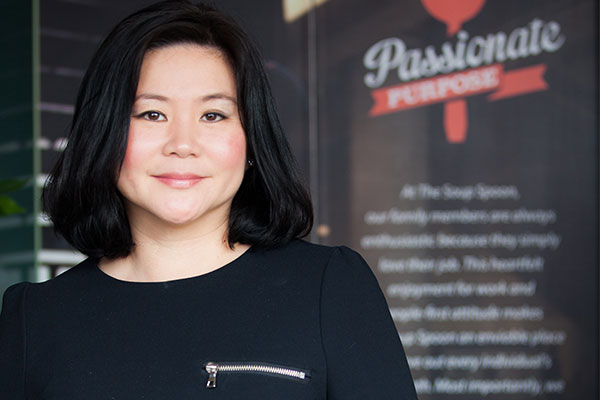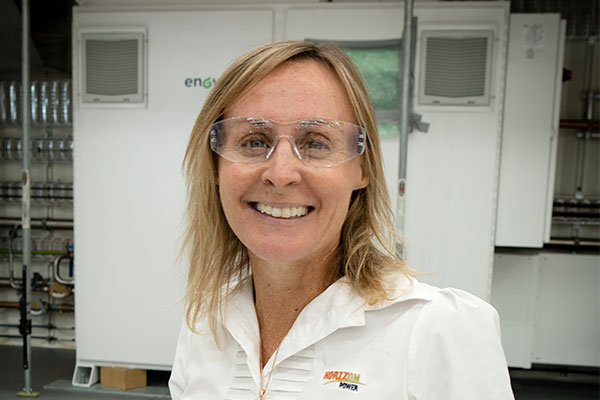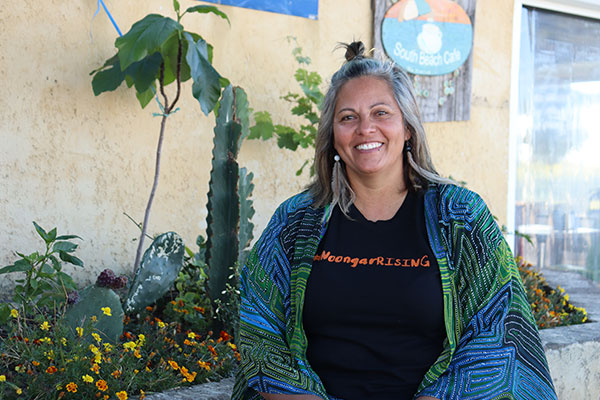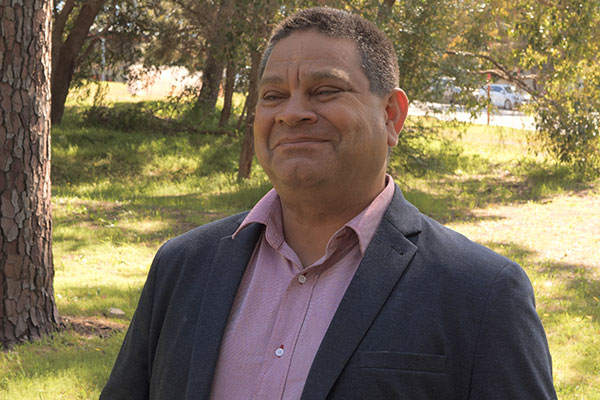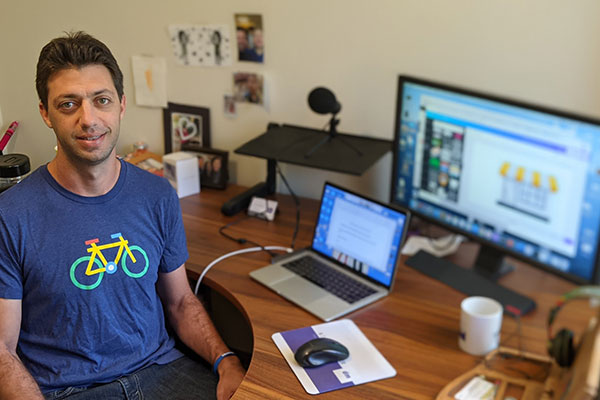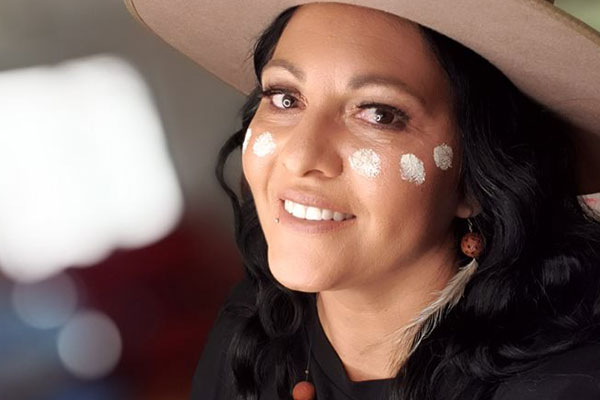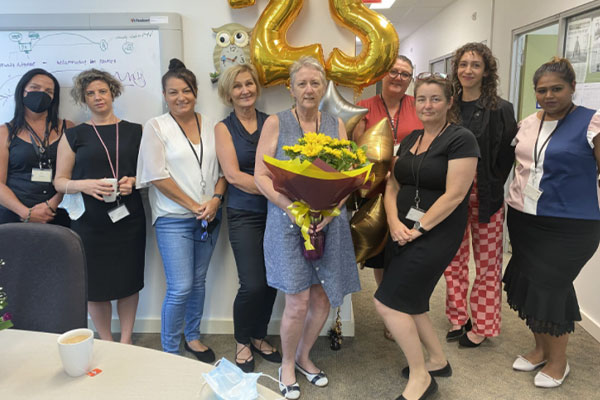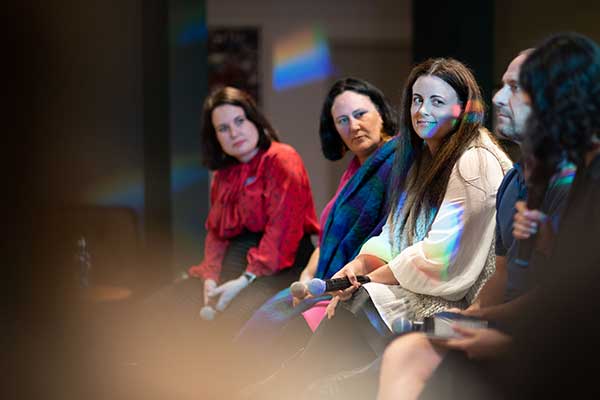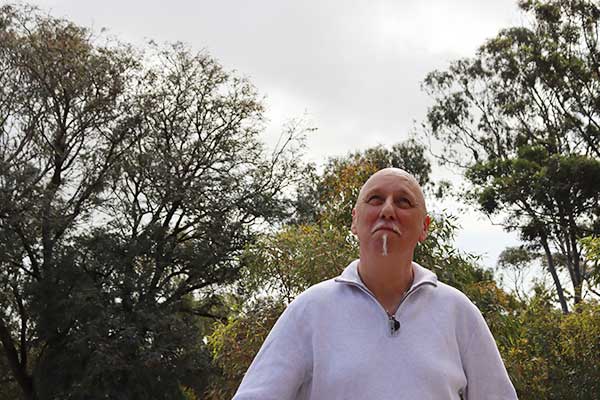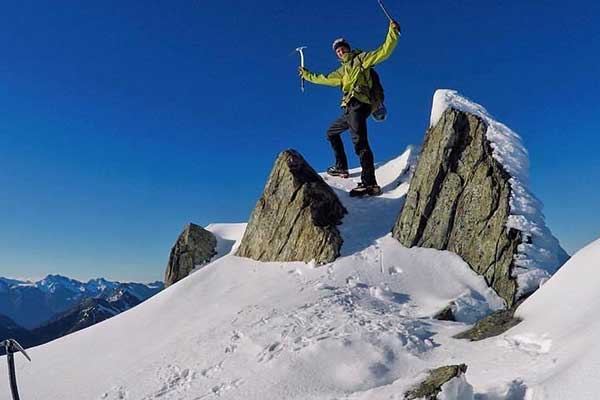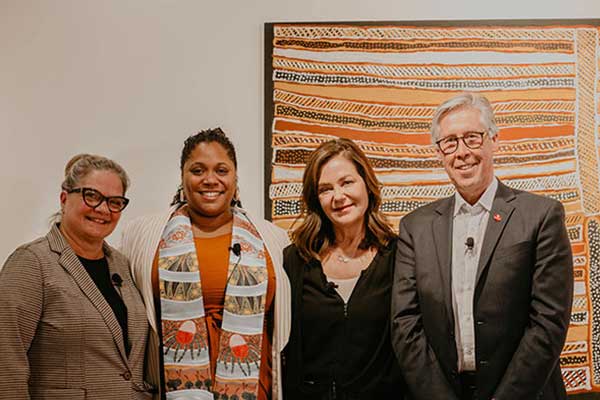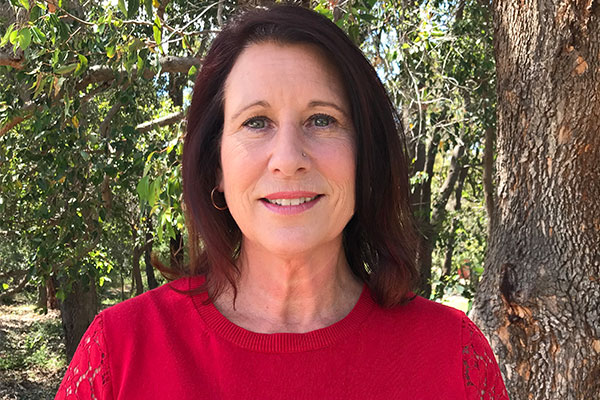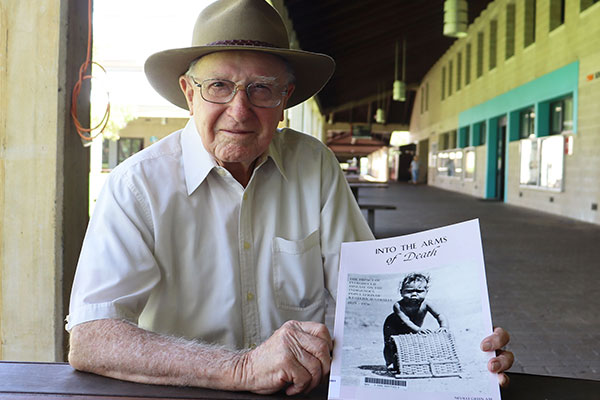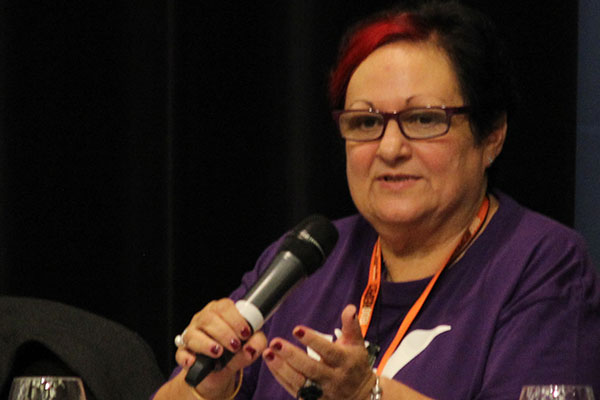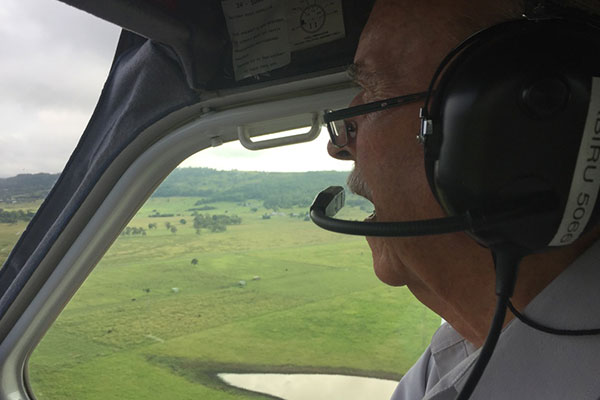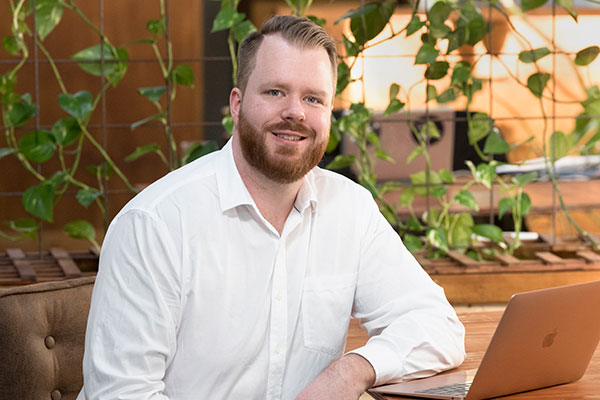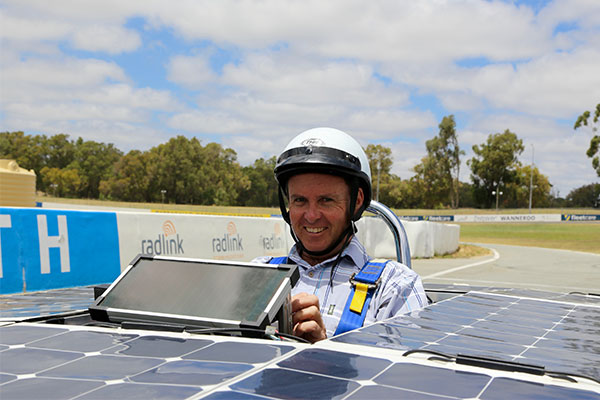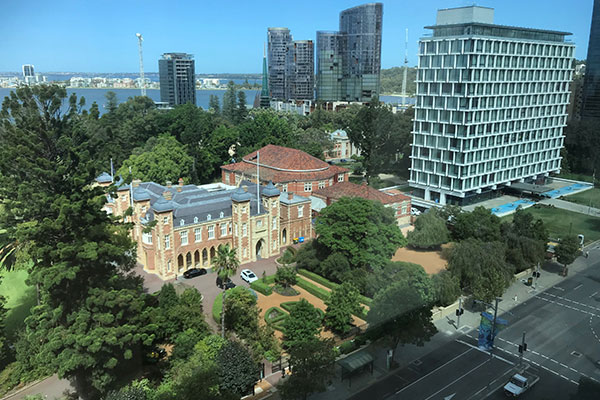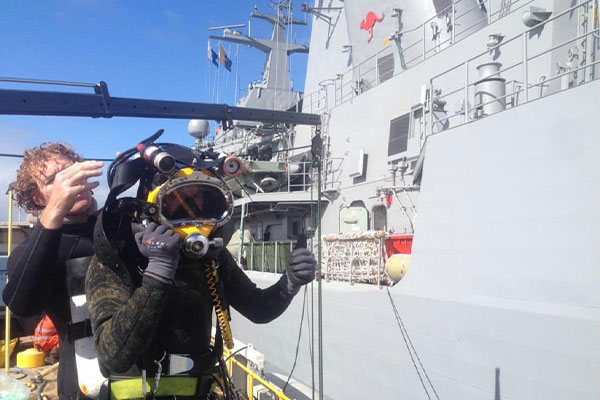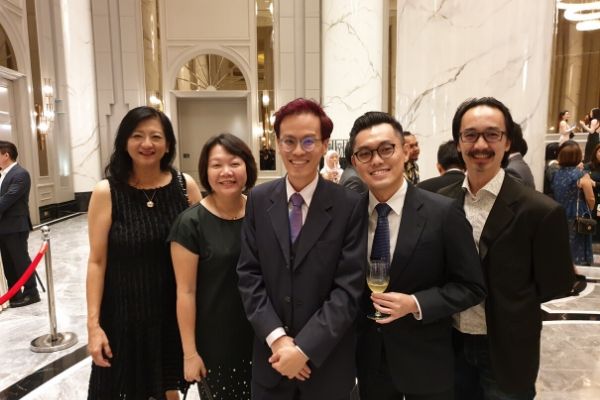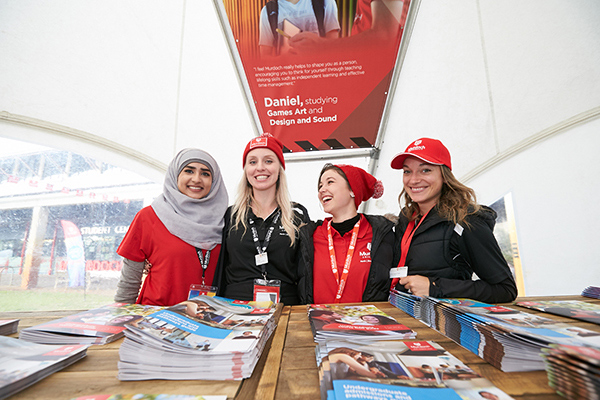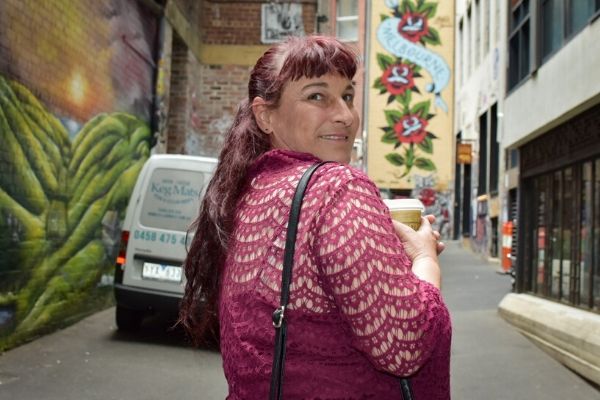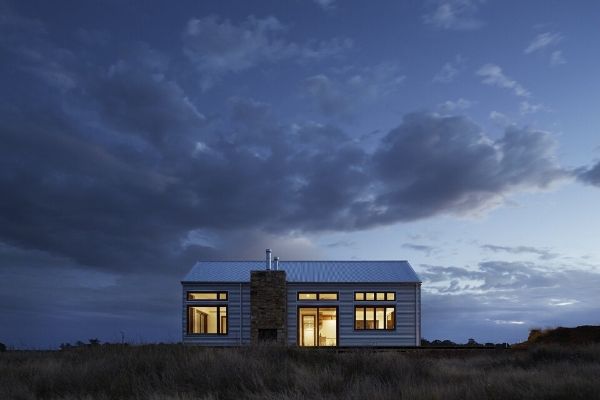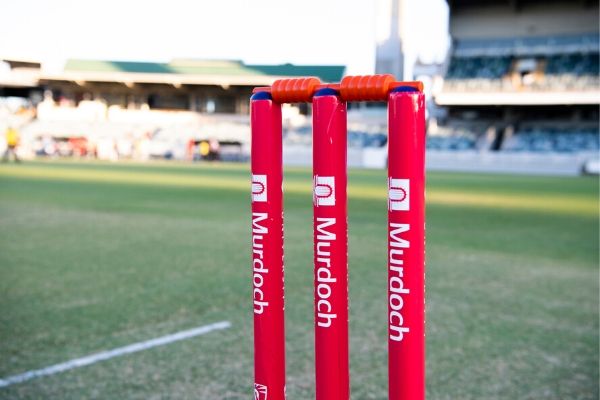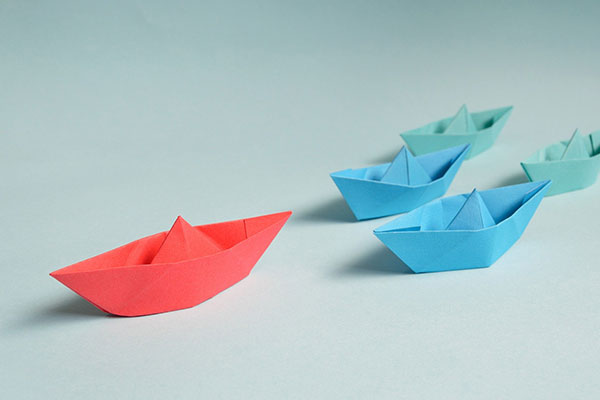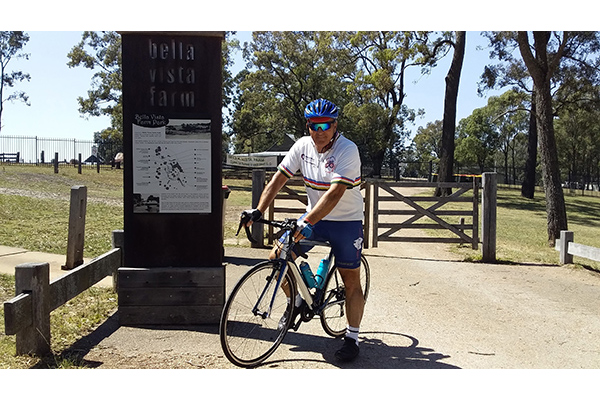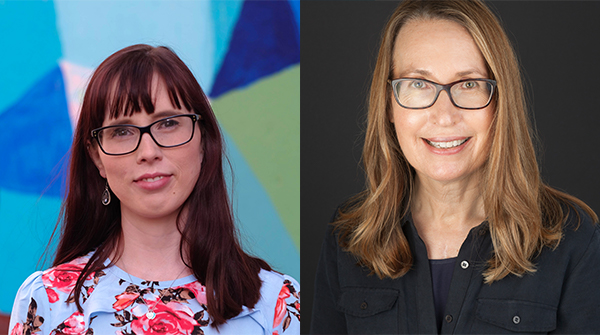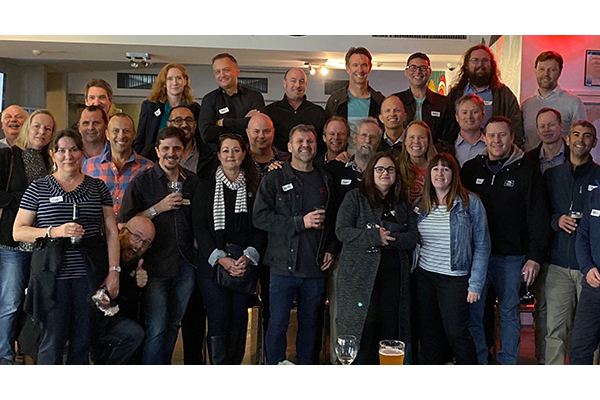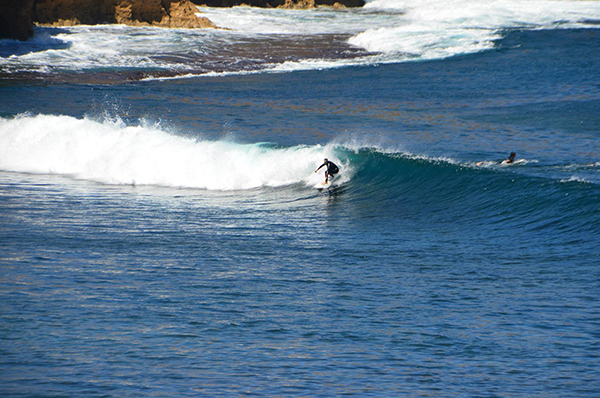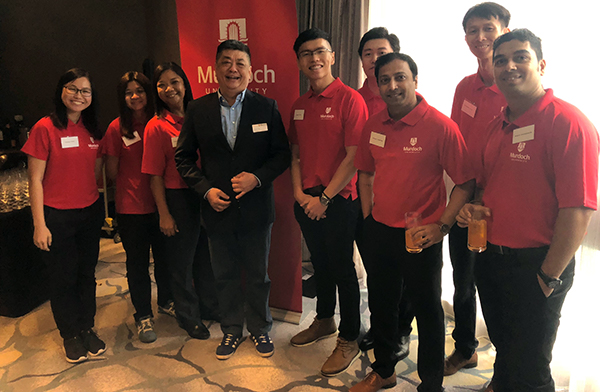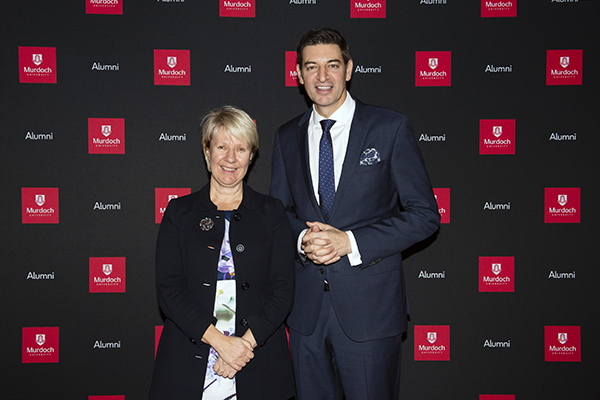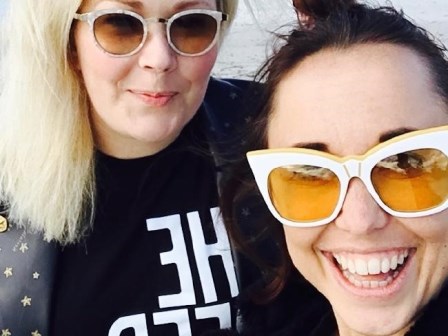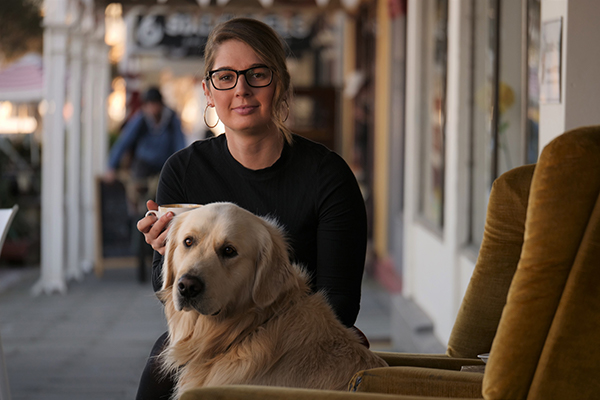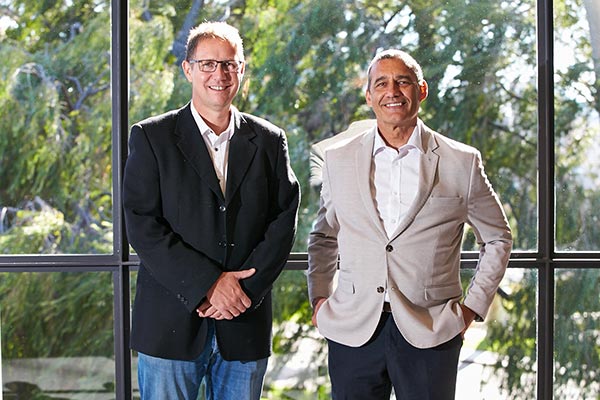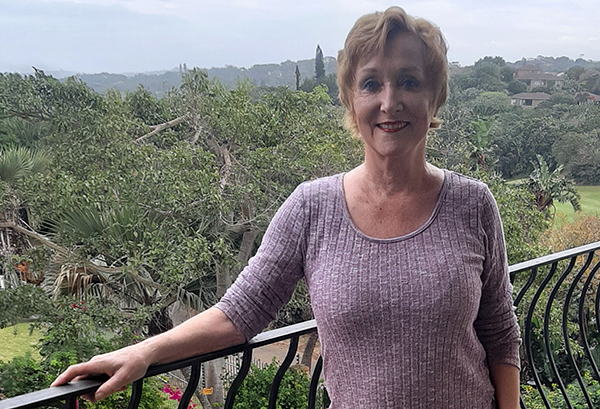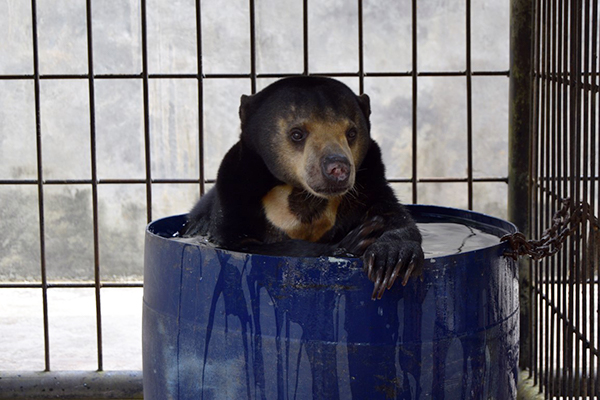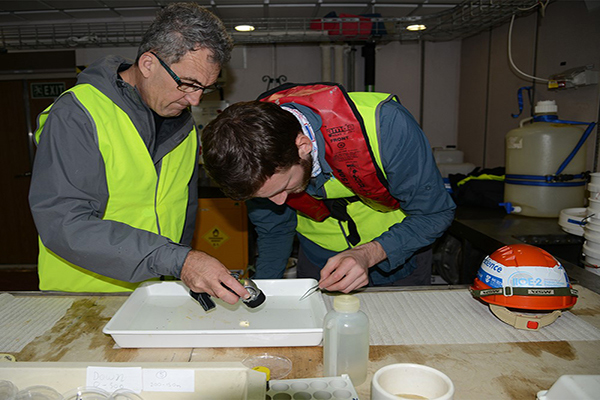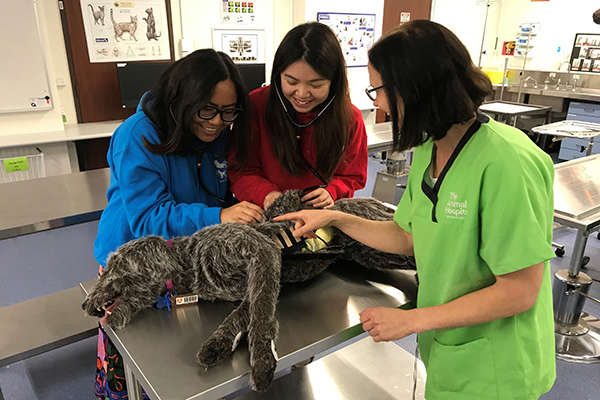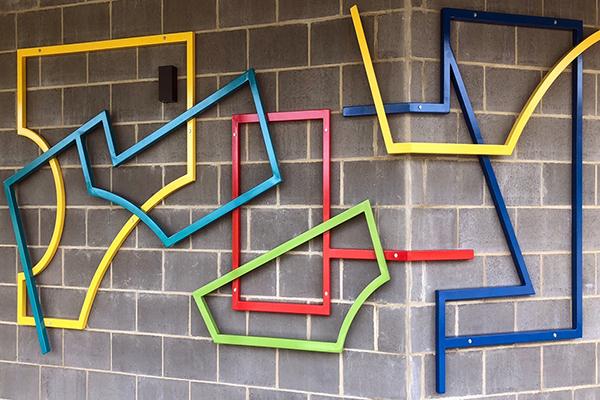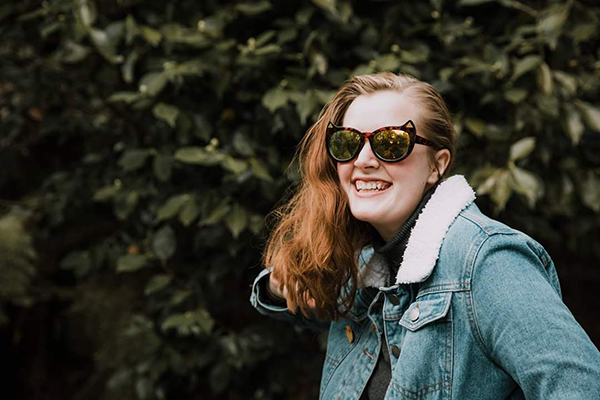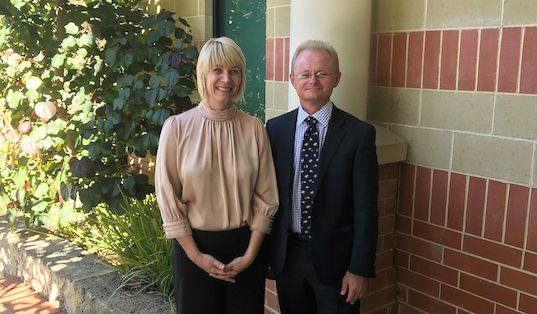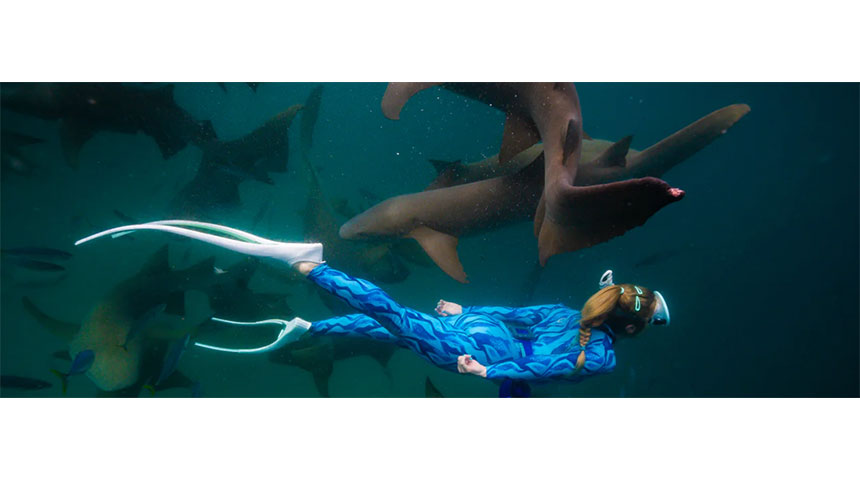
An early love of shark documentaries and the ocean led to Amanda Elizabeth becoming a shark biologist and conservationist.
Amanda (B Science - Marine Science 2015) has forged a divergent career that has seen her embark on marine conservation, documentary making and educating schoolkids about the much-misunderstood fish. Returning to post-graduate study for a Masters in Marine Biology, Amanda took a deep dive into the electroreceptive thresholds of sharks and rays. The latest career twist has seen Amanda establish a company to produce a line of wetsuits for adventurous women. The company, BOLDE, steers away from the boring, traditional black and creates stunning colourful designs tailored to the female form. We caught up with Amanda to find out a little more…
Have you always loved the ocean?
Yes. I’ve always lived near the ocean. I’m fascinated by it and it's just my happy place. I grew up in Adelaide in a suburb just south of the city very close to the ocean, so I’ve really grown up with it.
How was your time at Murdoch?
I really loved Murdoch and had a such great time. I'm still in contact with friends from uni which was 10 years ago now. I loved the field trips that we got to do in marine biology. One in Rockingham and then another was in Coral Bay. They were pretty cool experiences. Actually getting out in the ocean and practicing what you were learning was a special experience. Diving with manta rays and sharks was a highlight.
Why sharks?
I'm just fascinated by them. Before university I was working at the aquarium in Melbourne and had sharks around me every day. Not in a science capacity. I was just working in the retail section at the time, but I became a little bit obsessed with them. I would go home, watch all the shark documentaries and I knew I wanted to do something with them. That's when I decided to go to university and study sharks. There's so much we don't know about them. So many different kinds. They're just amazing and have always intrigued me.
As a shark biologist, what are some of the things that you may get up to during a typical week?
At the moment I'm doing a lot of shark biology talks. I go to different schools around WA, sometimes interstate, teaching children about sharks and expanding their knowledge. I teach kids it's not just what they hear or see in the media. Sharks aren't all scary. There's some amazing species that have some pretty special features. I speak about how some can glow in the dark, or ones that can walk. I really enjoy watching the kids’ reactions.
I also get to go on field trips, which is really cool. For example, next week I’m going out in the ocean for two weeks, testing some equipment. There's lots of working on a computer too, writing, reading and researching so it's not all glamorous swimming in the ocean and diving with sharks.
Do the media contact you if there’s been a shark attack in Perth?
Yes. I don't comment because I don't think there's anything I can add that would be of benefit. I could say these events don't happen very often, but then that's trivializing what's happened to someone and or someone's family. I also don't want to create a panic and say that beaches or rivers should be closed. I think adding to the hype is not really productive.
You were involved in a documentary with Discovery Channel a few years ago about the impact of shark fin soup on marine life. What was that like?
That was cool. It was based off my initiative called ‘Fin Free Soup’, which highlighted the restaurants serving the soup as well as the damage that shark finning and that dish has. There are over 100 restaurants in Perth that sell shark fin soup. It’s not an issue that's just overseas and it has really detrimental impacts on shark populations. So, a production company and I pitched it to Discovery Channel, and we were able to make the concept into a short film for Discovery. I've been involved in a few screen projects, but this was the first time I had my own film that I was able to host and co-write which was really exciting.
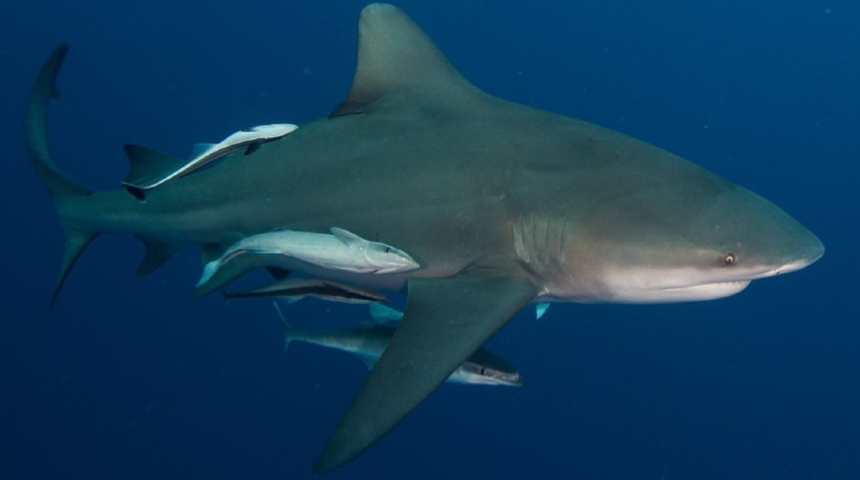
How did the wetsuit business develop?
I just couldn't find a wet suit that I loved. I would go to these dive stores, and they were always just black and dull. I like to wear a lot of colour, especially in summer. I just thought, why wait? So, I started looking into it. It just kind of grew from not being able to find what I like.
Has it been very popular?
I've had a lot of positive feedback. People are excited to see something that's especially for female divers, and also bright and colourful. I wouldn't say I'm overly even interested in fashion, but I do have a certain style with bright designs so that's what I've brought into the wetsuits.
How are the wetsuits specifically designed for the female frame?
It's to do with the stitching and also where we've put certain elements of the wetsuit. The stitching isn't just like a square, it's love heart shaped on the chest and then it tapers in on the waist. It fits that unique female shape rather than the square male shape. The band is curved around the hips, so it accentuates a woman's body shape. I really took into account the placement of the zips because I've had wetsuits before where the zip at the back stops really high and it's incredibly hard to get over your hips as a woman. I knew it needed to be much easier to get on and off, because otherwise women just don't bother. I also considered women that are out there pushing the boundaries and wanted to give them something that's specifically for them.
What influenced the design?
I really wanted to have the colours inspired by the ocean. There’s so much colour in the ocean and obviously the predominant being these beautiful, different hues of blue. There are scales coming in and out of the pattern. I thought about being in the ocean environment and designed it to fit in as much as possible. Having something that's really stark and contrasting, like a seal, I didn't think was a good idea. You blend into the ocean, but once on land, you stand out wearing it.
Is wet suit fabric and technology constantly evolving?
Yes. Limestone fabric has been around for a while now, but there are some new and improved, more environmentally friendly technologies coming out which is really exciting. I want my wetsuits to be as comfortable and as effective as possible, but also as environmentally friendly as possible. Wet suits were all predominantly petroleum based. Limestone base is much better for the environment and it's also more effective as it has a better stretch. It has advanced shape memory, so it's able to return to shape, whereas petroleum-based suits tend to lose their shape after a couple of seasons.
What’s next for BOLDE?
We definitely want to expand the size range and we will be releasing the 7ml which is good for diving and cooler weather. From there, we will bring out some new design patterns and colours.
Which marine research area would you love to be involved in in the future?
I’d like to be involved in testing shark attack mitigation technologies. My thesis was on electroreception and sharks. That's what the technology uses to deter them. Also, shark conservation. Anything to help protect sharks, or analysis to help identify sharks that are being sold through the black market.
